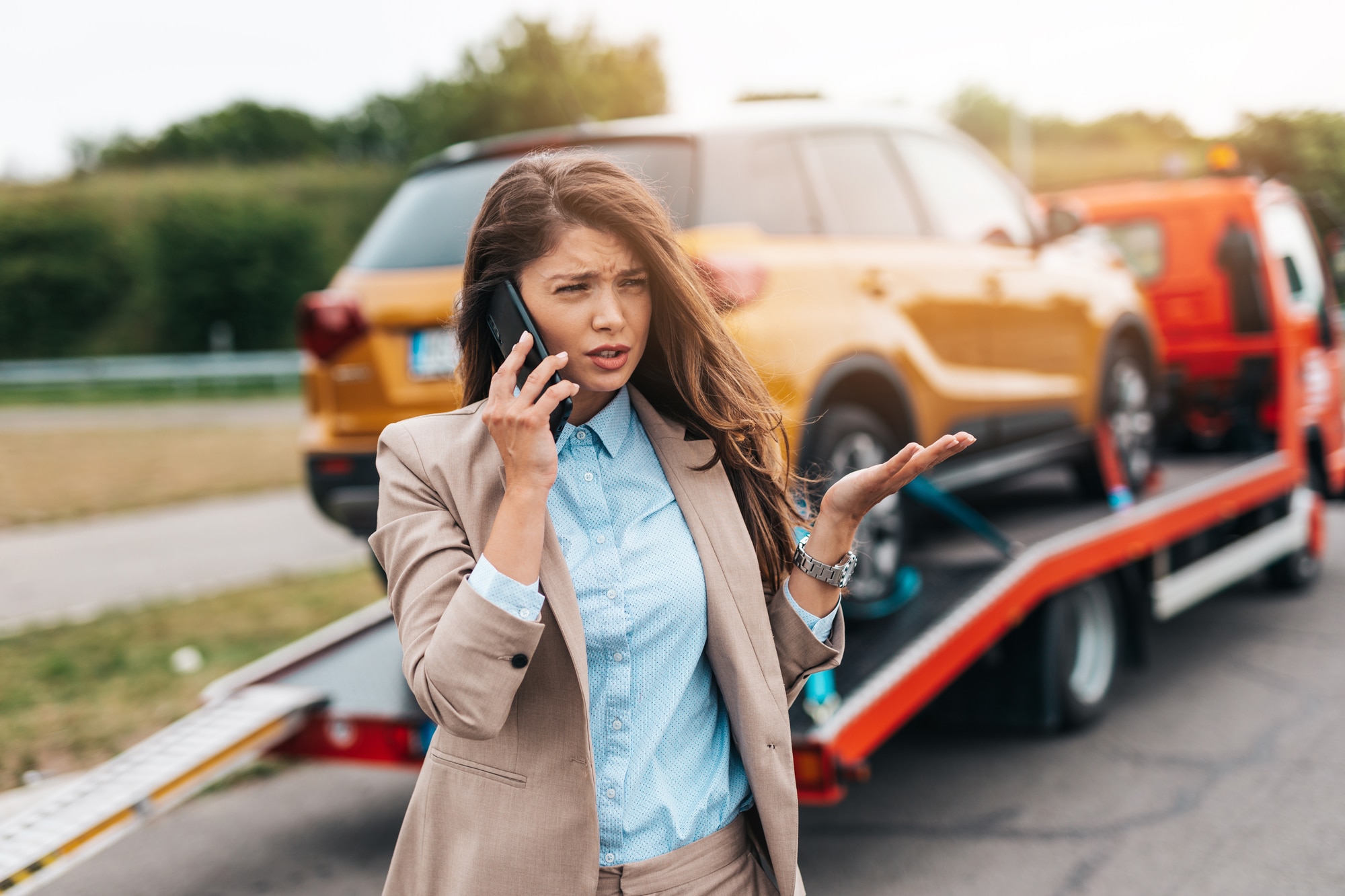My Car was Repossessed. What Should I Do?
If your vehicle was repossessed, find out the timeframe for making your balance current — your lender may also have some ways to help you out. Learn more about what happens when a car is repossessed.
 Shutterstock
Shutterstock
Originally published on July 19, 2018
Having your vehicle repossessed can put you in a difficult situation — an important mode of transportation is now unavailable. Repossessions can be discouraging, but we’re here to help you figure out your next steps. If you’re aiming to get your repossessed car back, there are a few things to keep in mind. Let’s dive into some commonly encountered questions on what happens when your car gets repossessed.
CAN I GET MY CAR BACK IF IT WAS REPOSSESSED?
The answer really depends on your specific situation. State laws and regulations largely control your rights after your vehicle is repossessed. In some cases, lenders may have policies in place that provide you with additional options following the repossession of your vehicle.
You may be able to get your car back if you fulfill certain steps in a timely fashion. These steps may include:
- Getting your account fully in order by paying off any late payments and all associated fees. Your lender might have some options to help you with this process. For example, the lender could offer a type of loan extension or modification that can extend the terms of the loan. Check with your lending institution to learn what they can do to help you get your account in order.
- Paying the fees that cover the cost of the repossession
- If the lender has transported the vehicle to an auction house, there could be additional fees as a result that must be paid in full
- Making sure you know the timeframe to get your vehicle back. This timeframe depends on the state you reside in, so check your state’s rules and regulations regarding car repossessions.
HOW DO I RECOVER MY PERSONAL BELONGINGS FROM MY CAR?
It’s important to remember that any property left in the car still belongs to you, not your lender. Any personal belongings that happened to be in the vehicle at the time of repossession should be held at the repossession (repo) agency for a certain period of time in accordance with state laws and regulations. You’ll need to contact the repo agency directly to schedule a time to pick up your belongings. The lender will notify you with the repo agency’s contact details. You’ll also be able to reach out to your lender to find additional details about the agency, including their working hours for you to contact them.
If your lender is Capital One and you would like to find out which repo agency to contact for your personal belongings, please contact our support center or refer to the letter you should have received from us.
DO I STILL OWE AFTER A REPOSSESSION AND THE VEHICLE SALE?
In some situations, you may still owe a balance even after your car is repossessed and sold at auction. If the sale of the repossessed vehicle cannot cover the balance owed to the lender, then you may need to pay the remaining balance after the sale. The lender will typically add on the cost of repossession and any necessary repairs to the vehicle to the remaining balance owed. Certain states prohibit a lender from collecting on a deficiency balance in some circumstances.
Finally, if the lender sells the repossessed vehicle and receives more money from the sale than the amount you owed, they should send you the surplus funds.
WHAT ELSE CAN I DO AFTER REPOSSESSION?
Knowing what to do if your car is repossessed can help make a less than ideal situation work for the betterment of your financial status. Regardless of the outcome of your situation, it’s a good idea to be mindful of your credit score after experiencing a repossession. Continue to make timely payments across all of your accounts to positively impact your credit score. Although repossession does affect your credit, making payments on time may play an important part in raising your credit score.
Written by humans.
Edited by humans.
 Capital One
Capital OneBanking should leave you with the same great feeling you get when you drive casually on a weekend afternoon. And that’s how I feel when writing helpful tips and reviews – passionate about cars and passionate about financing and everything in between when buying a new ride.
Related articles
View more related articles